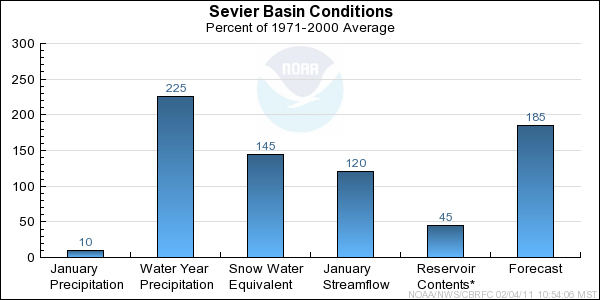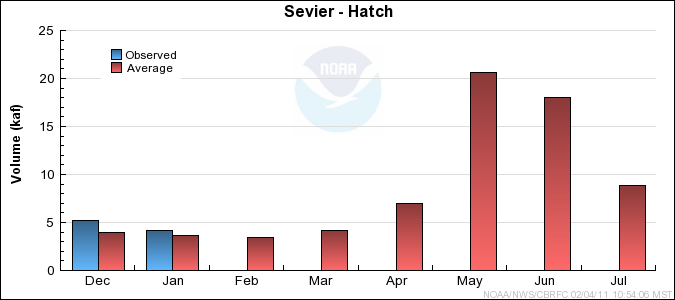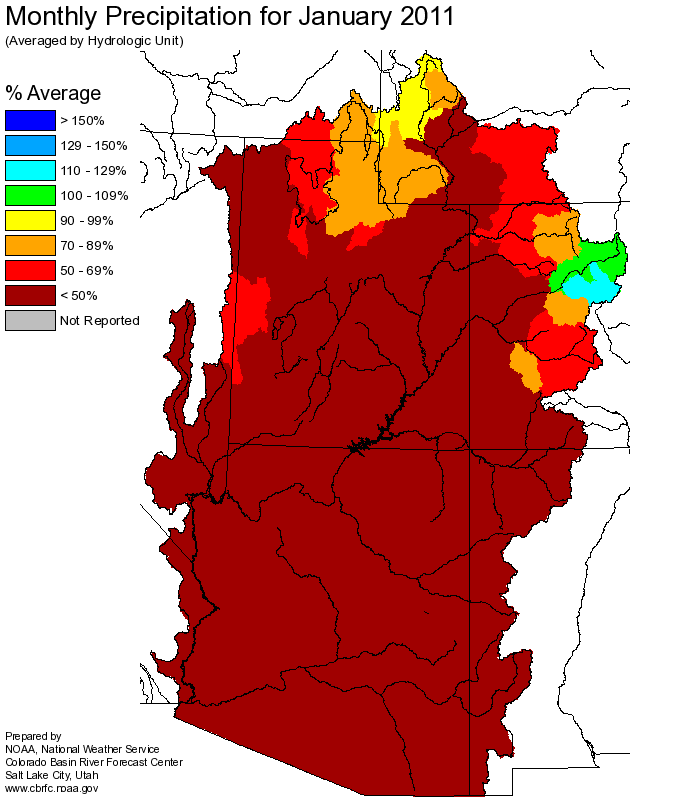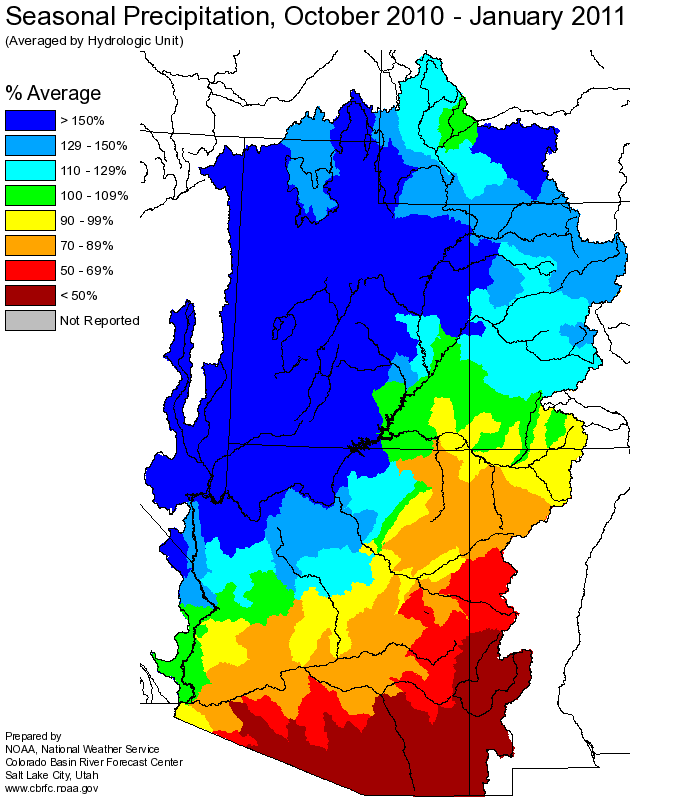The following conditions influenced this month's forecasts:
Precipitation:
January
precipitation was 10 percent of average.
Seasonal October through January
precipitation was 227 percent of average.
Streamflow:
Streamflow for the Sevier River at Hatch was 118 percent of average for January.
Snowpack:
February 1st snow water equivalent was 143 percent of average.
Upper Sevier River Basin
Snow Plot.
Sevier River Basin
Snow Plot.
Lower Sevier River Basin
Snow Plot.
Soil Moisture:
Modeled Soil
Moisture states were much above average heading into the winter.
Climate Forecasts:
Generally climate scenarios like El Nino and La Nina have a weak to moderate effect in the Sevier River Basin. However because we a lack of good
statistical correlation, these events are not specifically factored into our water supply forecasts.
Forecast Summary:
January precipitation throughout the Sevier Basin was extremely low at 10% of average. Seasonal October through January precipitation in the Sevier Basin remained much above average at 227 percent.
Current
April through July Seasonal volume forecast
range between 137 to 227 percent of average. The median forecast was 187 percent of average.
As a reminder, forecast for the EF Sevier, Sevier at Kingston, Piute Reservoir and Sevier near San Pitch Below Gunnison are all 'Regulated or Observed' flow forecasts rather
than 'Natural or Unregulated' forecasts which are corrected for all upstream diversions.
Differences between the full period forecasts and the residual forecasts may not exactly equal the actual observed volumes due to rounding conventions (see Definitions section).






